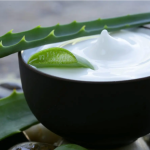Sinus issues can really be a nuisance, turning something as simple as breathing into a challenge. If you’ve experienced nasal congestion, facial pressure, or that dull, unshakable headache, you’re not alone. Sinuses are air-filled cavities in the skull that help filter and humidify the air we breathe, but when inflamed, they can cause discomfort, known as sinusitis. Seasonal allergies, infections, and environmental factors often trigger these issues, particularly during spring and fall when allergens are at their peak.
Understanding and managing sinus problems is essential—not just to alleviate symptoms but to prevent them from spiraling into chronic issues that can affect your overall well-being.
This article explores some remedies that can help you find relief, reclaim your comfort, and take control of your health.
1. The Power of Saline Solutions
One of the simplest and most effective remedies for sinus issues is using a saline solution. This method works by flushing out irritants like pollen, dust, and bacteria from your nasal passages. It helps to thin out mucus, reduce congestion, and ease inflammation.
You can use a saline spray for convenience or opt for a Neti pot for a more thorough nasal rinse. Be sure to use sterile, distilled, or boiled water to avoid introducing harmful microbes into your sinuses.
Pro tip: Pair your saline routine with a humidifier or steam therapy for even greater benefits. Moist air complements the saline’s action by keeping your nasal passages hydrated.
2. Boost Your Sinus Health with Vitamins
Did you know that certain vitamins and nutrients can enhance sinus health and strengthen your immune system? Vitamin C, a powerful antioxidant, can reduce inflammation and help your body fight off sinus infections. Other than that, Bromelain, an enzyme found in pineapples, reduces swelling and promotes sinus drainage.
Special vitamins for allergies and sinus issues like Hist Assist combine these key nutrients, making it an excellent choice for managing sinus and allergy symptoms. By taking such targeted supplements during allergy season, you can preemptively reduce the severity of sinus issues. Always purchase supplements from trusted sources like Towncrest Pharmacy to ensure quality and effectiveness.
3. Steam Therapy for Instant Relief
Steam therapy is a tried-and-true remedy for sinus discomfort. It works by loosening mucus and opening up congested nasal passages, providing almost immediate relief. To try this, boil a pot of water and let it cool slightly. Once the temperature is bearable, cover your head with a towel and lean over the pot. Inhale deeply for 10-15 minutes.
For a better experience, add essential oils like eucalyptus or peppermint to the water. These oils have decongestant and anti-inflammatory properties that amplify steam therapy’s benefits. A warm shower can also serve as a convenient alternative for a similar effect.
4. Hydration: A Simple Yet Overlooked Solution
Hydration is essential for maintaining healthy sinuses. When you’re dehydrated, mucus becomes thick and sticky, making it harder to drain from your sinuses. Drinking plenty of water keeps mucus thin and encourages proper sinus function.
In addition to water, herbal teas, and clear broths are excellent choices. Ginger or chamomile tea, for instance, not only keeps you hydrated but also provides anti-inflammatory benefits.
5. Anti-Inflammatory Foods to the Rescue
What you eat plays a big role in your sinus health. Incorporating anti-inflammatory foods into your diet can reduce swelling and improve sinus function. Foods like ginger, turmeric, garlic, and leafy greens are known for their anti-inflammatory properties and can help your body combat sinus issues from within.
On the flip side, certain foods may worsen your symptoms. Dairy products, for instance, can increase mucus production in some individuals. Sugary and processed foods may also contribute to inflammation, so it’s best to limit their consumption during allergy season.
6. Essential Oils for Sinus Relief
Essential oils offer a natural way to combat sinus congestion and inflammation. As mentioned previously, oils like eucalyptus, tea tree, and peppermint are known for their decongestant and antimicrobial properties. These oils help open nasal passages, reduce mucus buildup, and soothe irritation.
To use essential oils, add a few drops to a bowl of hot water for steam therapy. Inhale the fragrant steam to experience immediate relief. Alternatively, mix the oils with a carrier oil like coconut or olive oil and massage them onto your temples, chest, or under your nose. Diffusing essential oils in your living space can also provide consistent support for your sinuses throughout the day.
7. Elevate Your Sleeping Position
Your sleeping position can greatly affect sinus drainage and congestion. Lying flat on your back can cause mucus to pool in your sinuses, leading to increased pressure and discomfort. Elevating your head slightly while sleeping helps mucus drain more effectively, reducing the likelihood of waking up feeling congested.
Use an extra pillow or a wedge pillow to keep your head elevated. For those with adjustable beds, slightly raising the head of the bed is an excellent option. Proper positioning can also reduce the risk of sinus infections by encouraging mucus to flow naturally.
8. Exercise for Better Circulation
Regular exercise doesn’t just benefit your overall health—it can also improve sinus function. Physical activity boosts blood circulation, which helps reduce inflammation and promotes sinus drainage. Aerobic exercises like walking, cycling, or light jogging are particularly effective for increasing airflow and alleviating congestion.
Yoga is another excellent choice, especially poses that encourage sinus drainage. However, avoid intense or high-impact workouts when dealing with severe sinus pain, as they may exacerbate symptoms.
9. Use a Humidifier for Sinus Support
Dry air, especially during winter months or in air-conditioned environments, can irritate your sinuses and make mucus thicker. A humidifier adds moisture to the air, keeping your nasal passages hydrated and reducing irritation. This is especially helpful for those who experience sinus issues overnight.
When using a humidifier, keep the humidity level between 30-50% to prevent excess moisture, which can encourage mold or bacteria growth. Clean the device regularly to ensure it stays free from contaminants that could worsen sinus symptoms.
10. When to See a Doctor
While home remedies are highly effective for most sinus issues, it’s important to recognize when professional medical attention is necessary. Persistent symptoms lasting longer than 10 days, severe facial pain, high fever, or yellow-green nasal discharge may indicate a bacterial infection that requires antibiotics.
Don’t hesitate to consult an ear, nose, and throat (ENT) specialist if your symptoms persist despite trying multiple remedies. Timely medical intervention can prevent complications and help you regain control over your sinus health.
Sinus and allergy issues can really alter your quality of life, but with the right remedies, you can find relief and prevent chronic problems. From simple saline solutions and supplements to lifestyle changes like staying hydrated and using a humidifier, small steps can lead to big improvements. Always prioritize quality products and consult a healthcare professional when needed. Take charge of your sinus health and enjoy a more comfortable allergy season!
Lynn Martelli is an editor at Readability. She received her MFA in Creative Writing from Antioch University and has worked as an editor for over 10 years. Lynn has edited a wide variety of books, including fiction, non-fiction, memoirs, and more. In her free time, Lynn enjoys reading, writing, and spending time with her family and friends.















